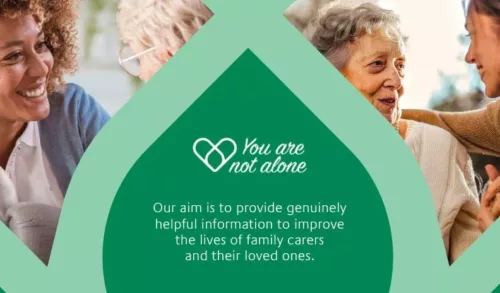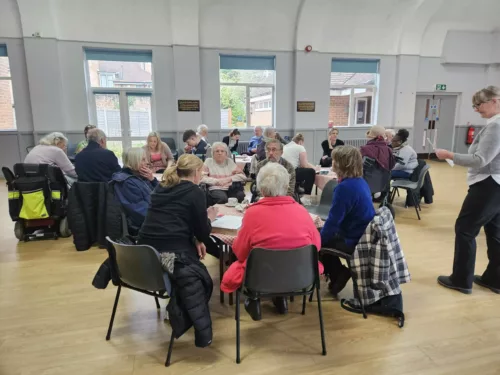
What is dementia?
Dementia is an umbrella term for a collection of medical conditions like Alzheimer’s Disease, Vascular Dementia and Parkinson’s. Dementia covers a wide range of symptoms like memory loss and loss of problem-solving skills which has an impact on daily life. Once it was believed that dementia was only found in old people and was a natural part of ageing, but now it is known that it can affect people at any time in their lives. If you notice the signs of dementia in a loved one, it’s important to get them to talk to their GP sooner rather than later.
What are the symptoms of dementia?
The symptoms include, but are not limited to, short-term memory loss, trouble concentrating, mood changes, being confused, struggling to follow conversations, misplacing objects, not remembering to pay bills or not remembering appointments or to cook food.
Normally this starts out as mild symptoms but can get worse, that’s why early intervention is important.
In advanced dementia, people may not recognise loved ones or remember where they live, they may lose the ability to communicate and start to have behavioural problems. All of these can be hugely distressing for the person with dementia and also for their families. At GoodOaks Homecare we know how hard it can be to see your loved one in distress. We work with you and your loved ones to create the best care plan, based around their needs.
How to communicate best?
Dementia can be difficult for both the person living with it every day and also for their families and loved ones – many people don’t know what to say or how to act. So, we have created a guide about how to talk to someone with dementia.
- Be kind. Imagine if you were in their shoes – how would you wish to be spoken to? Think about what they are going through – especially if they cannot recognise loved ones or their own home.
- Make the environment nice for them – sit down near them, without distractions like TV etc. This shows them that they have your full attention.
- Chose a time that suits them – If you see a pattern where they are more relaxed at a certain point of the day chose this time to engage with them.
- Be prepared – think of topics they enjoy discussing, bring visual cues with you – like a bunch of flowers from the garden, or put on some of their favourite music.
- Speak calmly and clearly. Use short, simple sentences. Give them eye contact and if they wish, hold a hand so they know you are there and listening.
- Try not to ask lots of questions, as they can easily lead to yes or no answers and the conversation won’t flow well.
- Try not to disagree or tell them they are wrong. This may discourage them of interacting with you.
- Be patient. Don’t rush them or try to finish their sentences, give them time to answer at their own pace.
- Give them a choice between two things, rather than lots of complex things as this can be confusing and upsetting.
- Repeat what they have said back to them to show you understand, or ask if you’ve understood what they’ve said correctly.
Remember, your loved one is still them. Even if they are having an off day or do not recognise you this time, they will recognise kindness and compassion.
How GoodOaks Homecare can help:
If you are concerned about a loved one, please speak to the team at GoodOaks Homecare. We provide live-in and visiting care for people in the comfort of their own home. If you would like help or support for you or your loved one, please feel free to get in touch for a free consultation about the care we could provide. You can find our contact details online, or feel free to give our head office team a call on 01202 757787 and we can put you in touch with your local branch.





